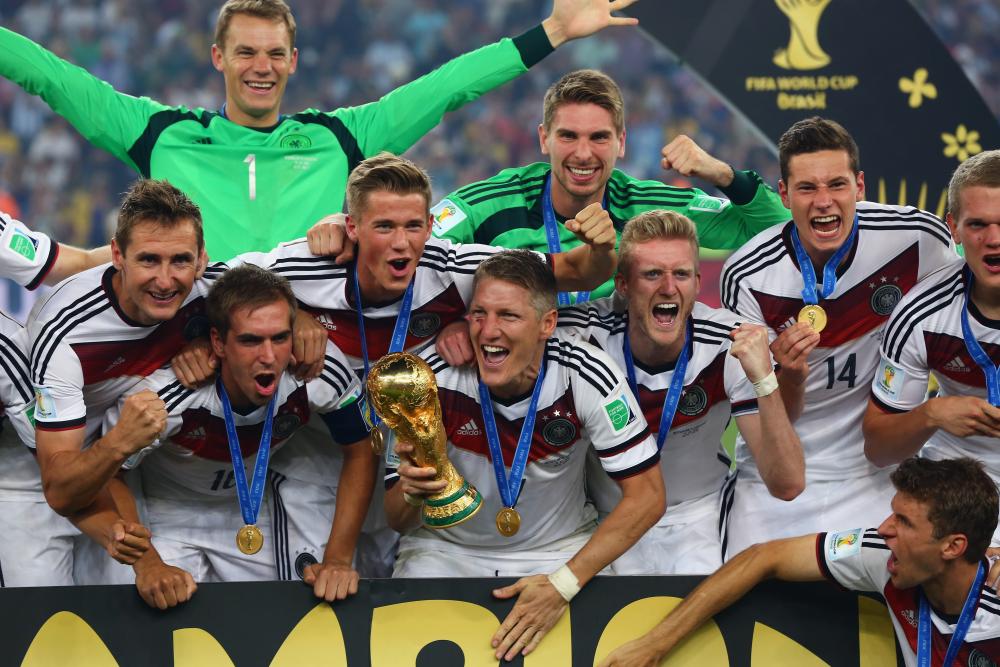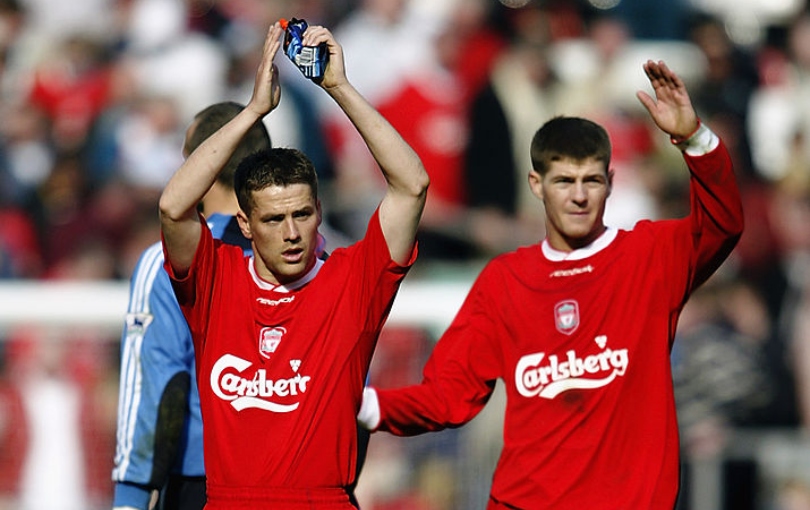Gotze glory rounds off captivating spectacle
The 2014 FIFA World Cup was a tournament of contrasting halves but sustained intrigue.

When Mario Gotze fired Germany to extra-time glory in Sunday's final at Rio's iconic Maracana, Brazil 2014 equalled France 1998 as the highest-scoring World Cup of all time.
That statistic owed much to the vibrant, almost devil-may-care nature with which numerous teams launched their campaigns during the group stages.
The first of many spine-tingling moments arrived before a ball was even kicked, when Brazil's fans and team roared their national anthem in unison at a fervent Arena de Sao Paulo.
Two goals from poster boy Neymar secured a 3-1 opening win over Croatia and, although those strikes papered over obvious cracks in Luiz Felipe Scolari's team, it was impossible to foresee the respective physical and emotional pain the Barcelona forward and his team would end up in as yellow and green optimism flowed.
A day later, world football's established order over recent years was blown to pieces.
Holding a 1-0 lead against the Netherlands as half-time approached and settling into their familiarly seductive passing rhythm, holders and two-time reigning European champions Spain had little indication of the horrors they were about to endure.
But Robin van Persie contorted himself remarkably to head Netherlands level - a goal arguably only surpassed by near crossbar-destroying volleys from Australia's Tim Cahill and Colombia’s James Rodriguez during a tournament packed with dazzling strikes. After the break, the Manchester United striker and Arjen Robben wrought havoc and Spain collapsed, battered to a 5-1 loss.
Get FourFourTwo Newsletter
The best features, fun and footballing quizzes, straight to your inbox every week.
That unforgettable night in Salvador had a key impact on the mood of Brazil 2014. Four years ago, teams packing their defences, holding on and praying against the technically excellent likes of Spain made for some insipid viewing.
The sight of the Dutch laying waste to the 'tiki-taka' generation seemed to have an emboldening effect on all-comers.
Traditional heavyweights were not to be feared - certainly not by Costa Rica, who came from behind to stun Uruguay before ensuring England and Italy perished in the 'Group of Death'.
Many of the great moments in those early stages belonged to the fearless breed of underdogs that the Central American nation embodied.
Algeria - arguably the most goal-shy and prosaic of the lot at South Africa 2010 - progressed from Group H behind Belgium, attacking with the type of unrelenting pace that brings fans to the edge of their seats and defenders out in a cold sweat.
There was even glory for teams who fell on their swords. Australia departed pointless but won many admirers in going blow-for-blow against the clearly superior opposition of Chile and Netherlands; Ghana took a break from debilitating in-fighting to puncture perceptions of German invincibility during a breathless 2-2 draw in Manaus. It proved to be their only point of the competition.
Only time will tell over whether the United States' love affair with 'soccer' is built to last, but Jurgen Klinsmann's tough and stylish team were the worthy catalyst of a whirlwind romance.
A World Cup feels incomplete without a South American superstar announcing his arrival and Colombia's Monaco playmaker Rodriguez swaggered irresistibly into view, with choreographed goal celebrations to boot.
As an Argentina leaning on Lionel Messi struggled to reach top gear during the group stages, it was left to Colombia and an irrepressible Chile side to capture the imagination amid the host continents' representatives. For Uruguay, Luis Suarez once again undermined his brilliance with garish controversy.
But history weighed on Chile and Colombia as they fell short against a limited Brazil during the knockout stages, when higher stakes tempered the creative freedom of the tournament's early days.
There was still time to fit in one more jaw-dropping moment for the ages. Germany's 7-1 dismantling of the hosts will for ever be a staple of World Cup retrospectives. That should help it finally become believable.
This is a Germany side without superstars but bursting with talent - a team in the truest sense as they perfectly realised coach Joachim Low's exquisite vision in Belo Horizonte before taking the ultimate prize at Brazil's football temple.
While the group stages belonged to mesmeric individuals such as Robben and Rodriguez, the knockout rounds demonstrated the power of the collective.
The Argentina squad that faced Germany on Sunday featured nine members of the group that won the 2008 Olympic Games. One year later, five of Germany’s starting line-up in Rio - six before Sami Khedira's late withdrawal - won the European Under-21 Championship.
It provides sobering reading for advocates of knee-jerk reactions and quick-fixes as Spain, Italy, England and Brazil lead the nations wondering where they go from here.
The evidence suggests that the next group of players destined for World Cup glory are a considerable way along their path to greatness already.
